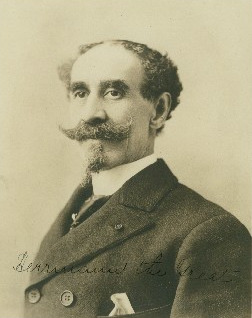“The magician depends for the success of his art upon the credulity of the people.”
The Art of Magic (1891)
Kontext: The magician depends for the success of his art upon the credulity of the people. Whatever mystifies, excites curiosity; whatever in turn baffles this curiosity, works the marvelous.
Of course human ignorance is no longer a source of profit to the magician, as it was in the days of the diviner, the oracle, and the soothsayer. Few believe nowadays that the magician claims any supernatural aid. I will scarcely be believed, therefore, when I tell my readers that in a few cities in Italy and Spain in which I have performed hundreds came to see me as a curiosity, impressed with the belief that for the power he gave me I had made a compact with the devil for the delivery of my soul. In these cities I have seen people reverently cross themselves when I was passing…
